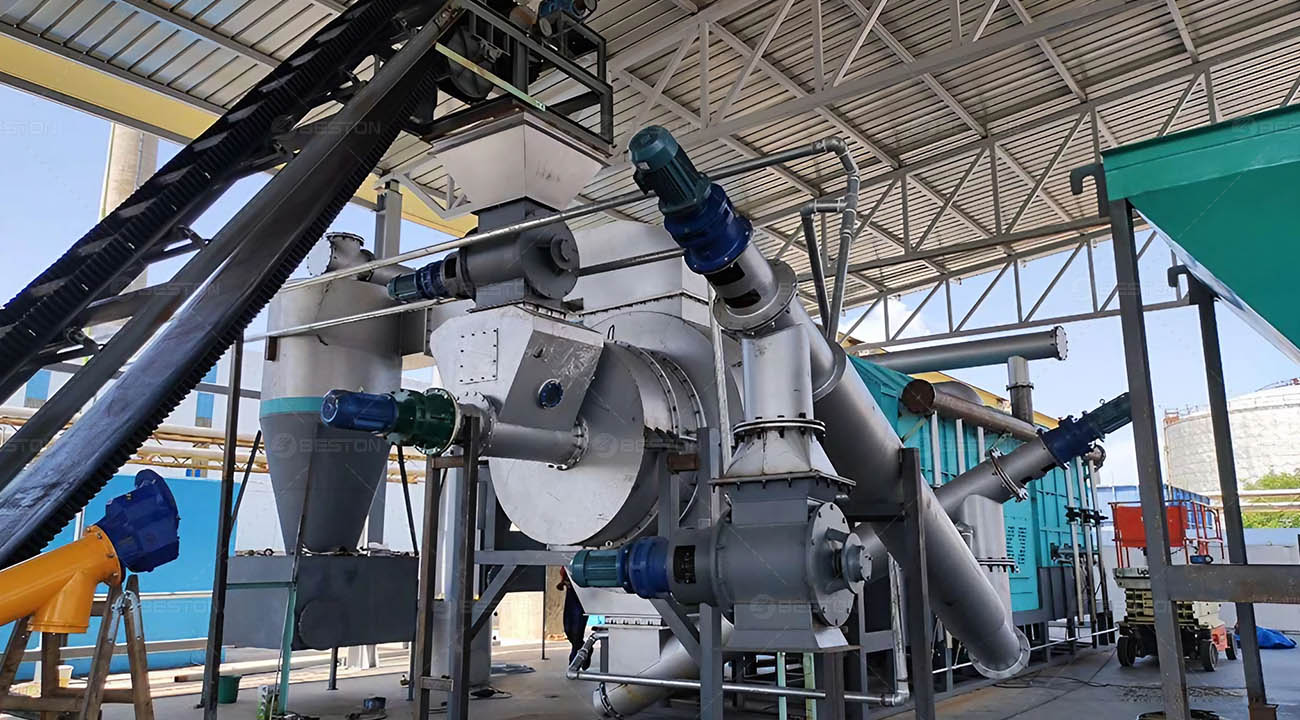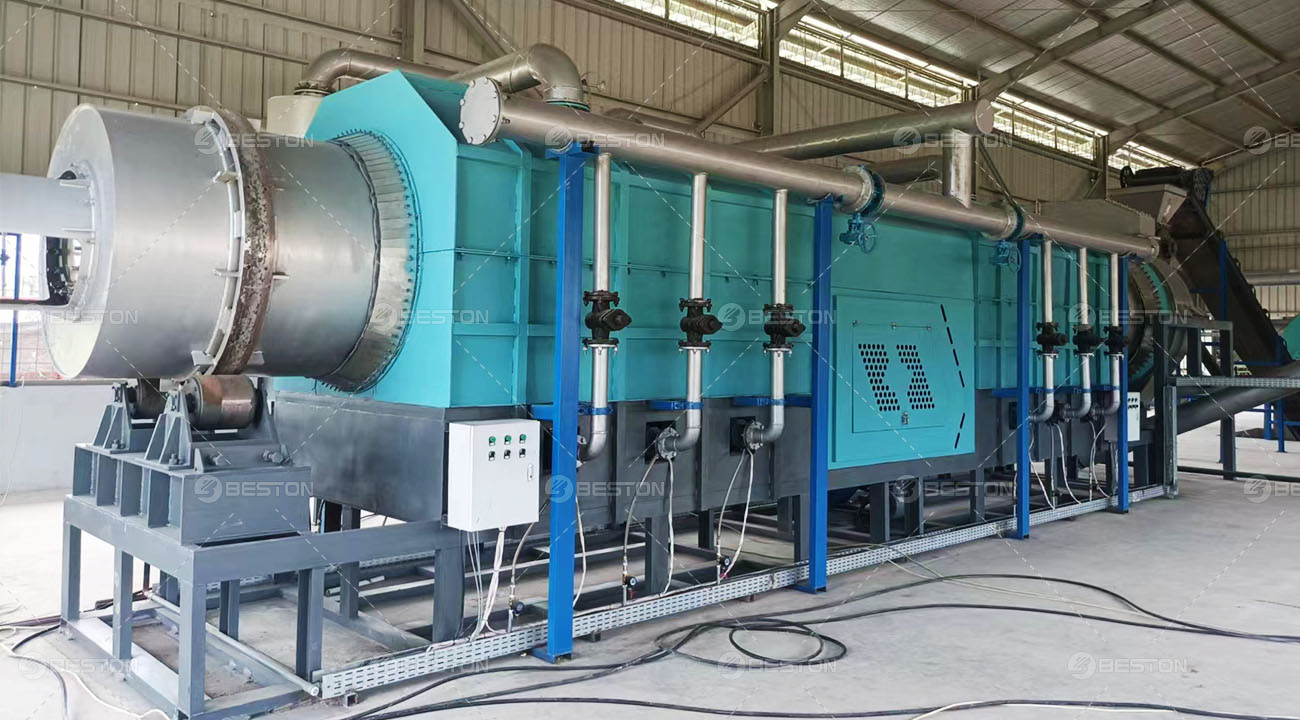In an era where environmental consciousness and sustainable practices take precedence, various industries are actively exploring innovative ways to reduce their carbon footprint and optimize resource utilization. Among these endeavors, the domain of charcoal production has witnessed significant advancements through the incorporation of modern charcoal making machine. These cutting-edge devices are revolutionizing conventional carbonization processes, ushering in a new era focused on energy efficiency and environmental preservation.
Introduction
Brief Overview of Charcoal Making Machine
Charcoal making machines represent a leap forward in biomass conversion technology. They facilitate the controlled pyrolysis of diverse organic materials, converting them into high-quality charcoal products. These machines cater to the growing demand for charcoal while addressing environmental concerns associated with traditional methods.
The Significance of Energy Efficiency and Emission Reduction
Historically, charcoal production processes were energy-intensive and emitted substantial pollutants. The contemporary emphasis on energy efficiency and emission reduction highlights the need to minimize resource consumption and mitigate environmental impact.
Energy-Saving Mechanisms
Advanced Heating Technology
- Induction Heating: Charcoal making machine incorporates induction heating, an electromagnetic method that efficiently transfers thermal energy. This technology minimizes energy wastage and accelerates the carbonization process.
- Microwaves and Radio Frequency Heating: These machines utilize microwaves and radio frequencies to resonate with biomass molecules, generating heat efficiently. This leads to reduced energy consumption and shorter production cycles.
Efficient Insulation Materials
- Aerogels: Lightweight and highly porous, aerogels possess exceptional thermal insulating properties. Integration of aerogel insulation minimizes heat losses during carbonization, enhancing energy efficiency.
- Vacuum Panels: Vacuum insulation panels, operating in reduced pressure environments, offer superior insulation. Their integration reduces thermal energy losses, maintaining optimal temperatures and conserving energy.
The amalgamation of advanced heating technologies and innovative insulation materials within charcoal making machine exemplifies their commitment to energy saving and operational efficiency.
Process Optimization for Emission Reduction
Closed-Loop Systems
- Gas Collection and Recycling: Biochar production equipment incorporates closed-loop systems to capture and recycle volatile gases emitted during carbonization. This minimizes emissions and recovers additional energy.
- Minimizing Volatile Organic Compounds (VOCs): Precise process control and temperature regulation reduce VOC formation and release, contributing to reduced atmospheric pollution.
Catalyst Utilization
- Zeolites: Porous zeolites serve as catalysts within charcoal making machine, aiding the breakdown of complex organic molecules. This leads to cleaner and more efficient carbonization processes.
- Activated Carbon Catalysts: Specialized catalysts enhance the conversion of volatile components into desirable products, preventing the escape of harmful emissions.
The integration of closed-loop systems and catalysts in charcoal making machine underscores their commitment to substantial emission reduction and environmental preservation.
Automation and Control Systems
Real-Time Monitoring
- Sensors and IoT Integration: Charcoal making machine employs sensors to monitor temperature, gas composition, and pressure in real-time. Data integration into the Internet of Things (IoT) framework enables informed decision-making.
- Data Analytics for Process Optimization: Collected data undergoes advanced analytics, identifying trends and patterns. This optimization enhances energy-saving practices and emission reduction efforts.
Adaptive Control Strategies
- Feedback Loops: Machines use feedback control loops to adjust process parameters based on real-time data. This dynamic adaptation optimizes resource consumption and minimizes emissions.
- Machine Learning Algorithms: Leveraging machine learning, these machines refine operational strategies, yielding predictive insights for energy efficiency and emission reduction.
Sustainable Feedstock Selection
Biomass Sources
- Agricultural Residues: Charcoal making machine, also called biomass pyrolysis plant, accommodate diverse biomass feedstocks, including crop straws and husks. This repurposes waste, reduces landfill load, and promotes sustainable resource management.
- Forestry By-Products: The machines process forestry by-products like sawdust and wood chips, efficiently utilizing wood resources and preventing deforestation.
Impact on Carbon Footprint
- Life Cycle Analysis: Charcoal making machines undergo life cycle assessments to quantify environmental impact. This analysis evaluates energy consumption, emissions, and resource use, offering a comprehensive understanding of their carbon footprint.
- Carbon Sequestration Potential: Charcoal produced by these machines contributes to carbon sequestration by retaining biomass carbon. This enhances their role in mitigating climate change.
Regulatory Compliance and Certification
International Standards
- ISO Certifications: Charcoal making machines adhere to ISO standards for energy efficiency and emission reduction. These certifications validate compliance with globally recognized sustainability benchmarks.
- Environmental Protection Guidelines: The machines align with regulatory environmental protection guidelines, reinforcing responsible and eco-friendly operations. If you are willing to invest, we recommend that you choose Beston Group Co., Ltd.. It is an experienced enterprise dedicated to environmental protection equipment.
Importance of Regulation Adherence
- Legal Implications: Complying with energy and emission regulations ensures legality and prevents penalties. Charcoal making machines play a pivotal role in responsible industrial practices.
As technology evolves, charcoal making machines continue to lead the charge in achieving energy efficiency and emission reduction, contributing to a more sustainable future.